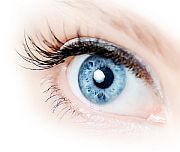

Children with type 1 diabetes may not need to start screening for eye disease as early as currently recommended, a new study suggests.
Most children with type 1 diabetes probably don’t need a yearly exam for diabetes-related eye disease (diabetic retinopathy) until age 15, or 5 years after their diabetes diagnosis, whichever is later, the study authors reported online Sept. 1 in the journal Ophthalmology.
“Many of our young patients with diabetes diligently come in every year for screenings that consistently show no sign of the disease,” study co-author Dr. Gil Binenbaum, attending surgeon in the ophthalmology division at The Children’s Hospital of Philadelphia, said in a journal news release.
“Of course, that’s good news for them, and it is very important to have annual eye exams once the risk of vision loss develops. But, is it worth the burden on the family and the health care system if evidence shows that diabetic retinopathy doesn’t reach a treatable stage until years later?”
Early detection and treatment of diabetic retinopathy reduces vision loss in adults, the researchers said. Some medical groups currently recommend that screening start at age 9, or three to five years after a type 1 diabetes diagnosis.
But, this study found no evidence of diabetic retinopathy in 370 children who had at least one screening. And, that was true regardless of how long they had diabetes. It was also true whether their blood sugar levels were well controlled or not, the research showed. The children were all 18 or younger, and had type 1 or type 2 diabetes.
Children with type 2 diabetes and those at high risk for diabetic complications should begin screening as soon as they are diagnosed with diabetes, the study authors said. Many people with type 2 diabetes live with uncontrolled disease before they are diagnosed, the researchers explained.
Diabetic retinopathy is the leading cause of blindness among working-age Americans, according to the U.S. National Eye Institute (NEI). The eye disease affects nearly 8 million people in the United States, the NEI said.
More information
The U.S. National Eye Institute has more about diabetic retinopathy.
Source: HealthDay
Copyright © 2025 HealthDay. All rights reserved.

Leave a Reply